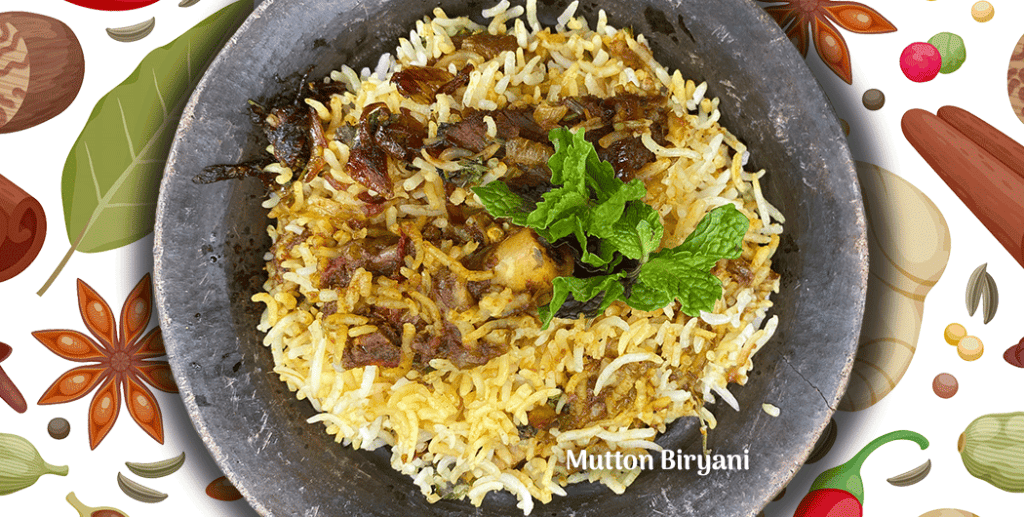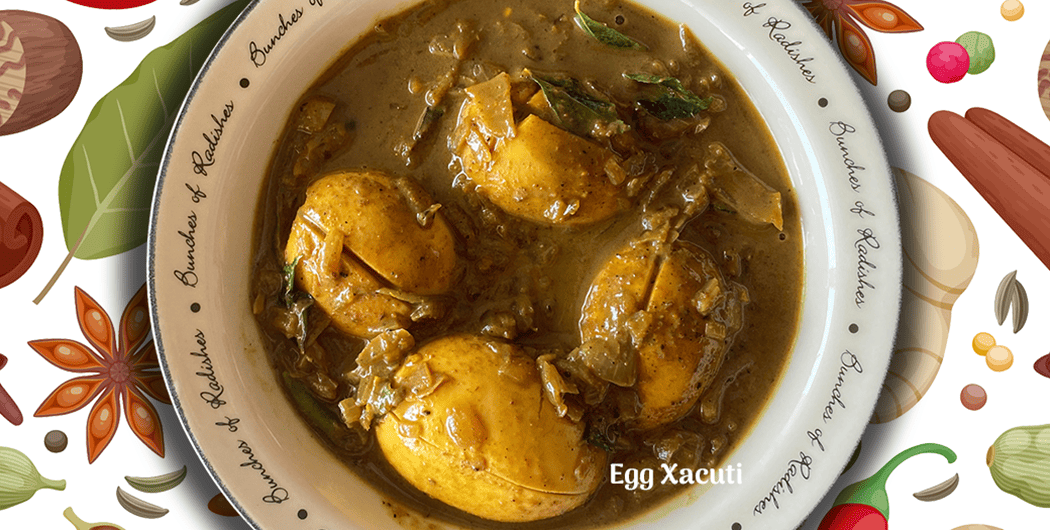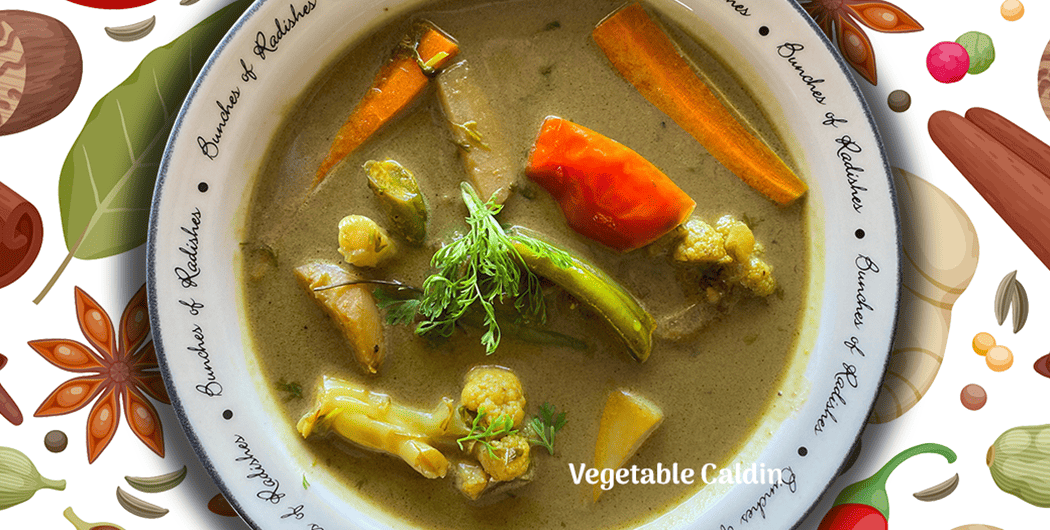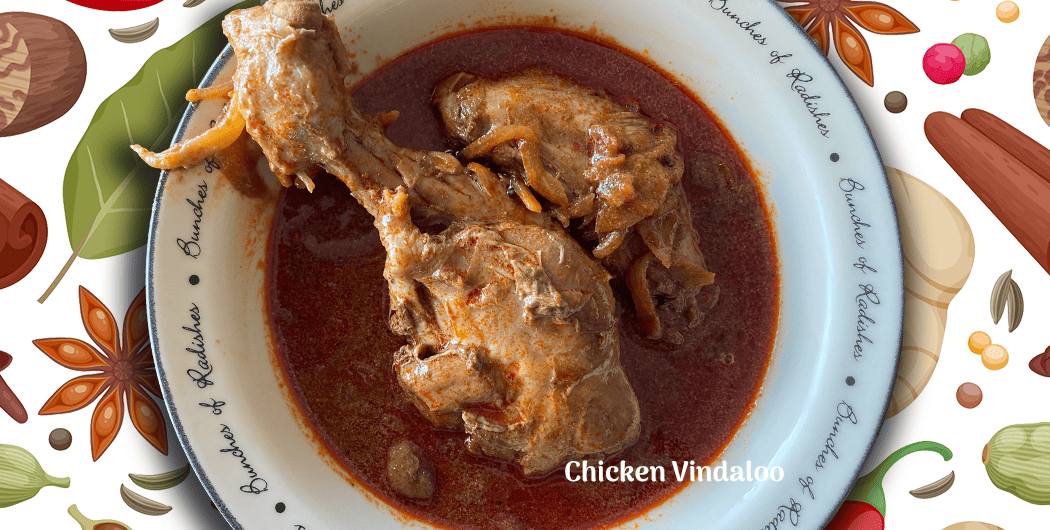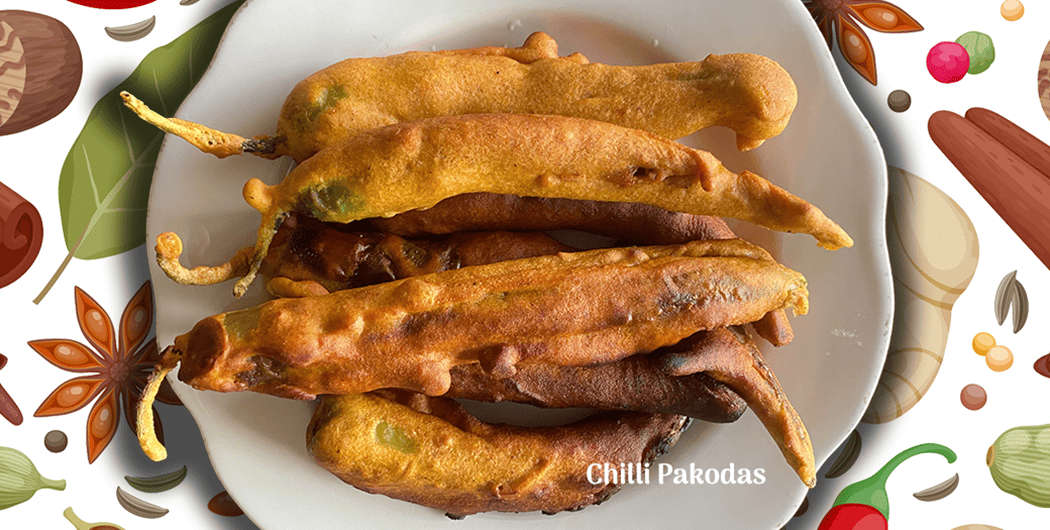If there’s any preparation that’s instinctively identified with the Muslim communities of the Indian subcontinent, no doubt it’s the biryani. Its close association with ancient Muslim centres in the country, Muslim families, and also Muslim traditions and culture makes it an indispensable and integral part of the Muslim world. The staggering regional variations that are now available is a testimony to its huge popularity, enduring taste and convenience to consume. This one pot dish which perhaps originated in the Mughal kitchens in India traces its beginnings to the pilau, a Bedouin one pot dish of goat meat and rice, cooked over a wood fire in a clay pot, created out of convenience and lack of access to a wide variety of ingredients in the desert lands of Persian peninsula. Its advent in India offered an opportunity to reinvent this dish with the wide variety of Indian spices and various other meats and vegetables and opened up the gates for experimentation and innovation, though mutton (meat of goat) still remains the natural traditional choice of meat. Biryanis are generally cooked during a festival or a celebratory occasion than for everyday meals at home, perhaps because of the perceived intricacy and the time taken in its preparation but they are fast becoming a ‘family’ dish in many homes.
The Women of Fatorda Goemchi Biryani masala is an ancient recipe which is a blend of spices that are traditionally used by the Muslim community of the Chandrawado locality of Fatorda. Handed down generations within families, this masala offers the aroma and taste of Mutton Biryani particular to Goa, and it is what you would find on the tables in Goan homes. The following biryani recipe is the traditional method for making mutton biryani as it is made in home kitchens and is not excessively rich or overtly opulent making it ideal for everyday meals. Like all our other masalas, this masala too does all the hard work, needing very little added ingredients, and makes Goan food accessible, desirable and simple to make, allowing you to be not only an expert in Goan cooking without spending too much time in the kitchen but also a connoisseur of traditional Goan cuisine. Enjoy.
What you need –
- Mutton:1 Kg (2.2 pounds)
- Basmati rice: 1 Kg
- Red onion: 2 large
- Fried Onions*: 1 cup
- Tomato: 2
- Green Paste*: 3 teaspoons
- Turmeric powder: 2 teaspoons
- Water for rice: 3-4 litres
- Raw spices: 1 Bayleaf
- 2 cardamom pods
- 1 2-inch cinnamon stick
- 2 star anise
- 4 cloves
- Salt to season and taste
- The Women of Fatorda Goemchi Biryani masala.
Green Paste – Green paste is a multi-purpose paste that is found in every Goan home, and is made to add in various preparations as and when needed. To make a simple green paste, Grind together 2 big bundles of fresh coriander leaves, 4-5 green chillies, 8 garlic cloves, 1/2 inch ginger and 1/2 tsp turmeric powder with a quarter cup of water. Make sure you add water a little at a time so that the paste is of thick consistency. Keep refrigerated and use as required.
Fried Onions – To make crispy fried onions to use as a garnish, deep fry 2 medium sized onions sliced thinly in 4 tablespoons of oil. Drain and keep aside. Do not discard the oil.

Bibi Sugra Khan
This recipe of Mutton Biryani has a distinct Goan touch, and is from Bibi Sugra Khan from the Chandrawado locality of Fatorda. This biryani is made exactly how her family has been making it for ages.
Step 1 – You will need one kilo of fresh mutton on the bone, cut to bite sized pieces. Clean throughly, and remove excess water. You can also use boneless mutton, but traditionally, mutton on the bone is used.
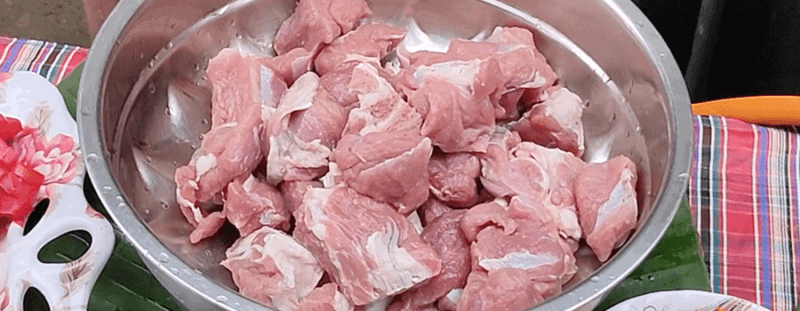
Step 2 – We will now marinate the mutton with 1 teaspoon of turmeric, 2 teaspoons of Green Paste (please refer to the ingredients section to see how Green Paste is made).
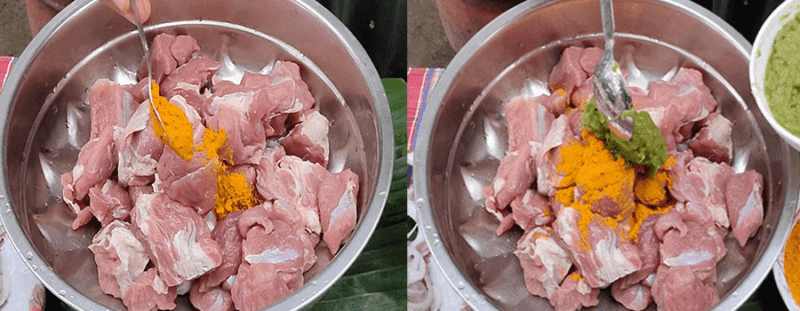
Step 3 – 3 tablespoons of curd or yogurt, unsalted if you have, and 2 teaspoons of fresh lemon juice.
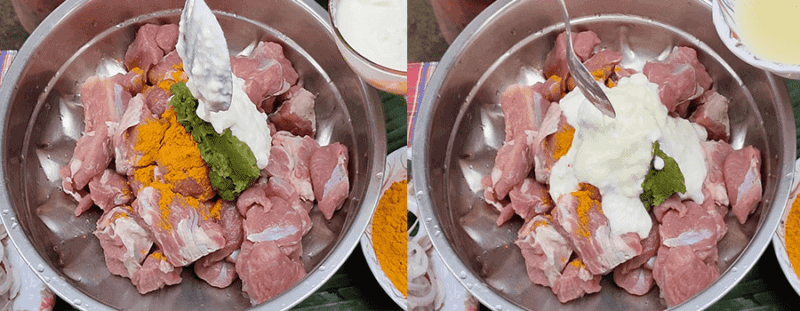
Step 4 – And 2 teaspoon heaps of The Women of Fatorda Goemchi Biryani masala.
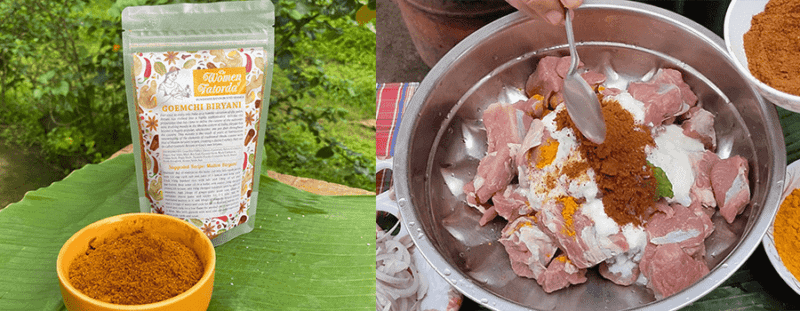
Step 5 – Mix it thoroughly using a ladle or hands, making sure that the mixture is coated very well on the meat. The more you mix, the better it is as the marinade will seep into the meat. Let it rest for at least an hour. Again, the more the better, and overnight marination of meats never fails to give excellent results.
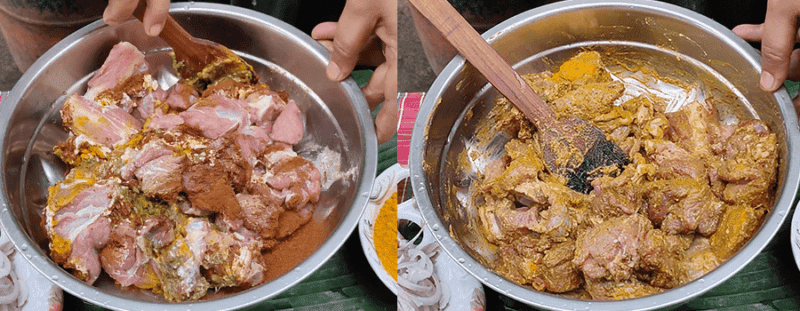
Step 6- While the meat soaks in all the marinade, take a large deep bottomed pot and heat 4 tablespoons of oil. Traditionally, coconut oil is used, but you can also use refined oil but do avoid using any with strong smell or flavour. When it heats up, add the onions, and sauté them until they turn translucent and light brown in colour.
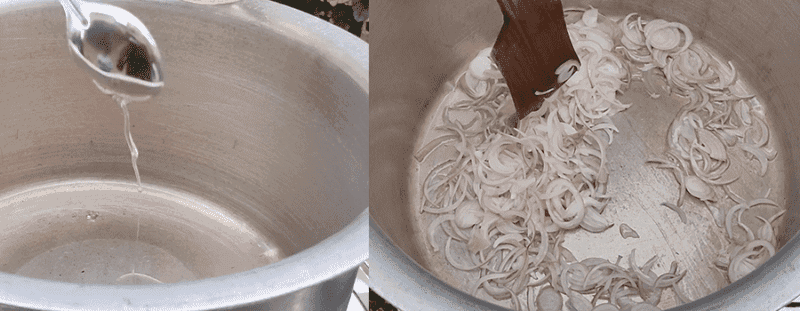
Step 7- Simultaneously, prepare the rice. We need 1 kilo for 1 kilo of mutton. Keep the rice soaked for at least an hour so that it becomes soft and easy to cook. Long grain Basmati rice is ideal for biryanis.
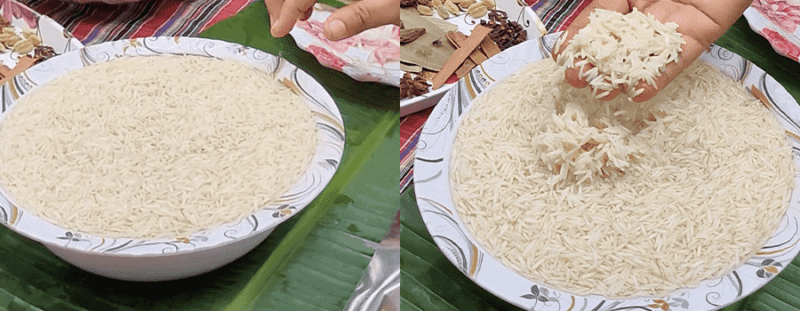
Step 8- Bring at least three to four litres of water to boil in a large vessel. Add 3 tablespoons of oil, just to make sure that the rice does not stick to the vessel.
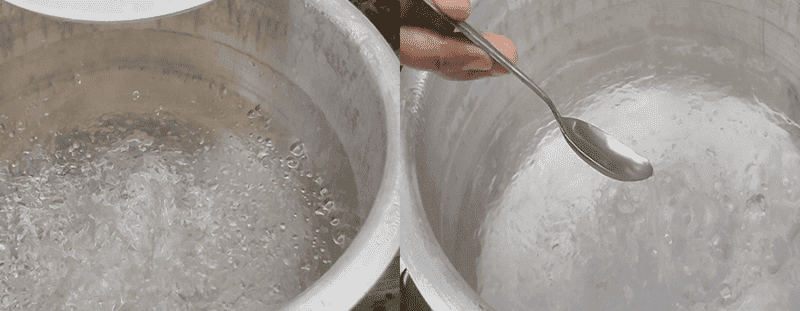
Step 9- Now add the raw spices: cumin, bay leaves, pieces of cinnamon sticks, star anise, cardamom pods, and cloves.
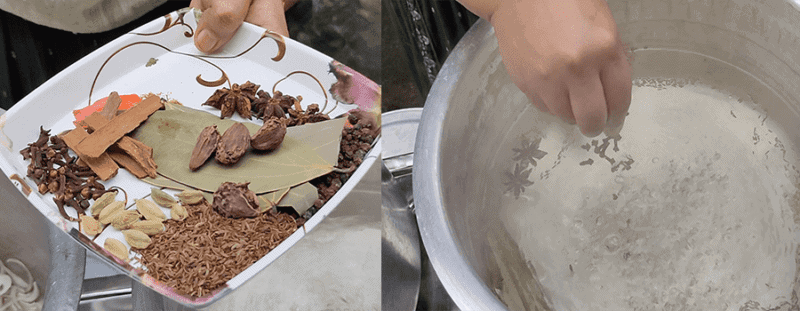
Step 10- Add salt. One heaped teaspoon should do. Stir well for a few seconds.
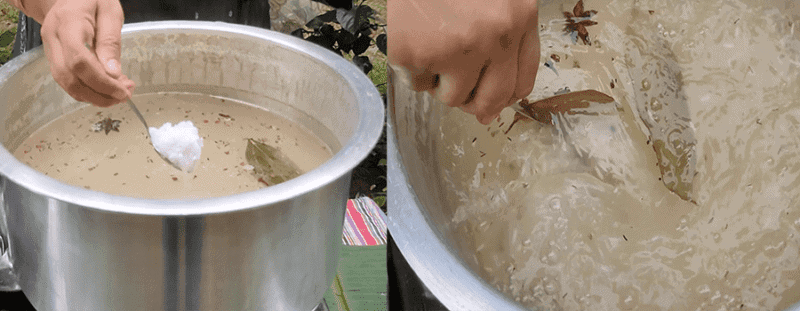
Step 11- Add the soaked rice and cook until about 80% cooking is done. The rice should be firm to touch.
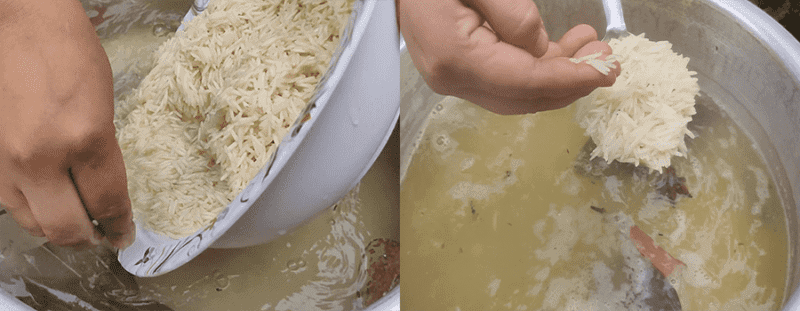
Step 12- Now we get back to the marinated mutton. Transfer the meat to a pressure cooker, add two teaspoons of oil, and then cook for 3 whistles. The meat should be around 90 percent done.
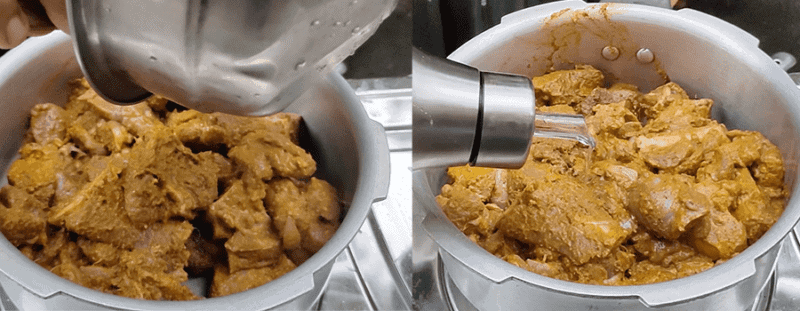
Step 13- Meanwhile, the onions have turned golden brown by now, add the chopped tomatoes and sauté for a few minutes or until the onions and tomatoes turn into a consistent paste.
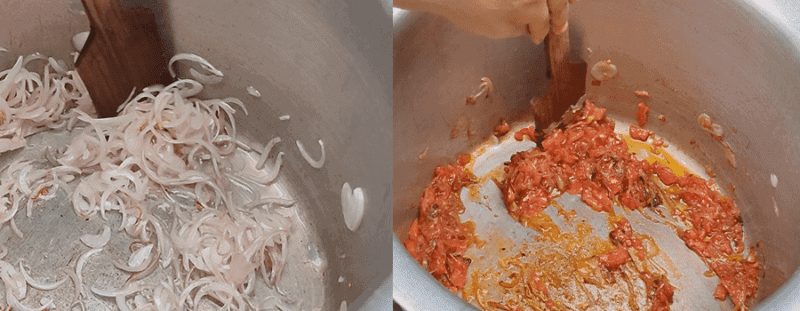
Step 14- Add the remaining teaspoon of turmeric powder along with two teaspoons of green paste.
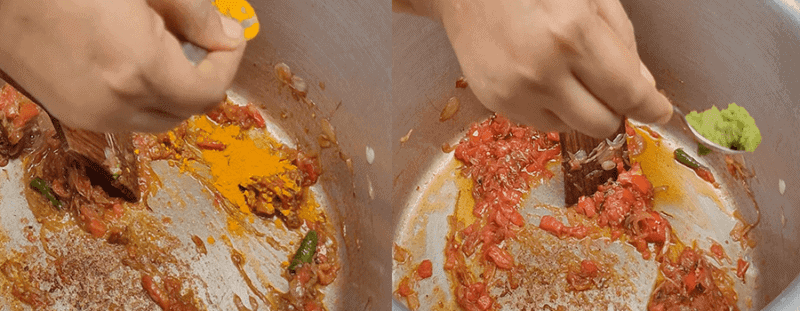
Step 15- Add 2 heaped teaspoons of The Women of Fatorda Goemchi Biryani masala.
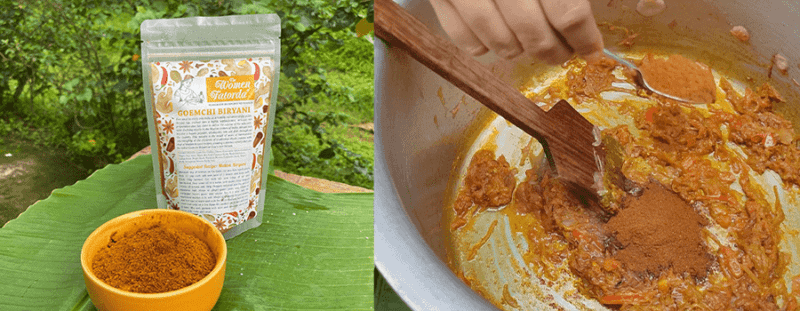
Step 16- Fry, stirring all the time well until the mixture turns into a fine paste.
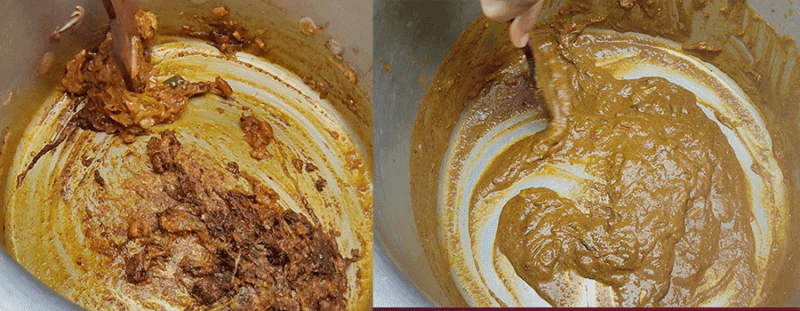
Step 17- Add a tablespoon of the oil you fried the onions in, or a tablespoon of ghee if you like.
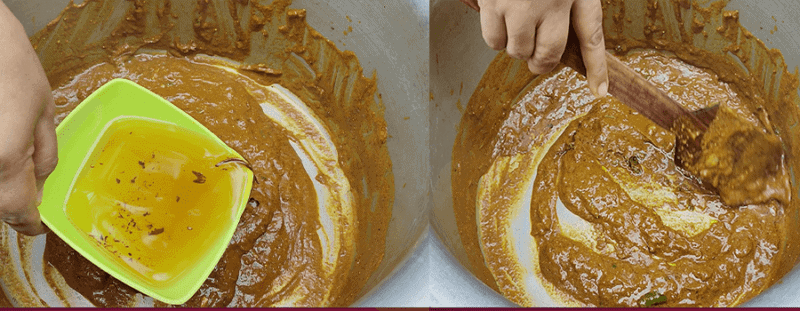
Step 18- Add half the rice over the gravy, and spread it as a layer levelling with a spoon.
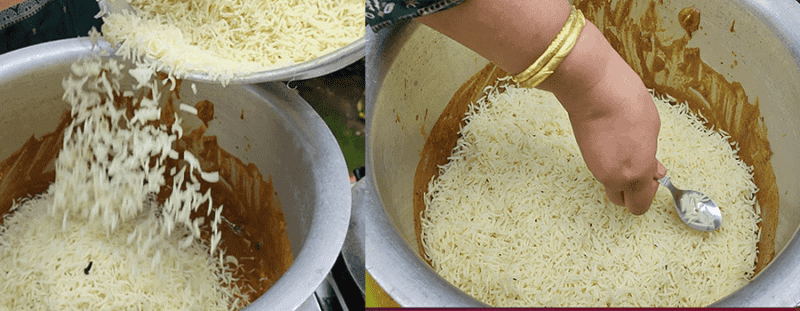
Step 19 – Add the cooked meat on the rice to form another layer.
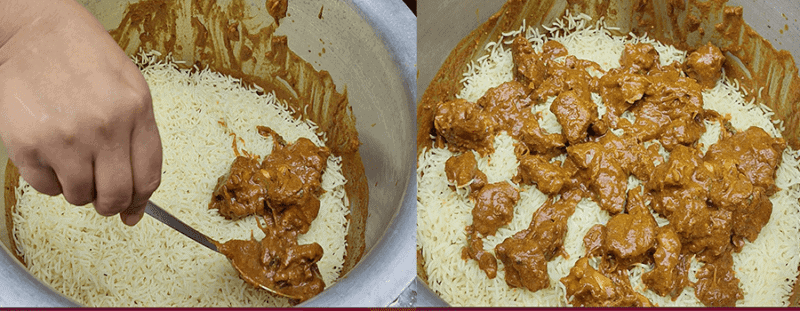
Step 20- Add chopped coriander and chopped mint evenly over the meat.
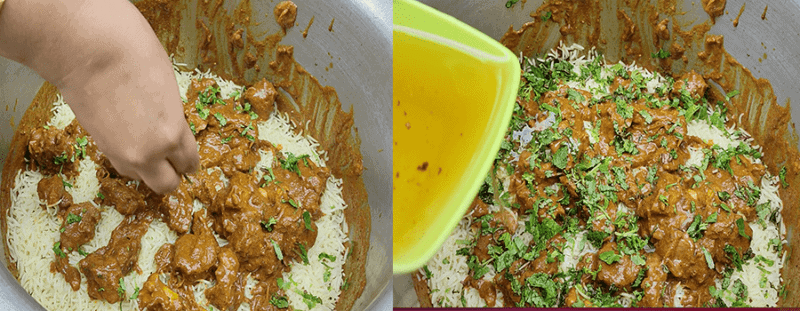
Step 21- Now add the other half of the rice to form yet another layer over the meat. Level with a spoon.
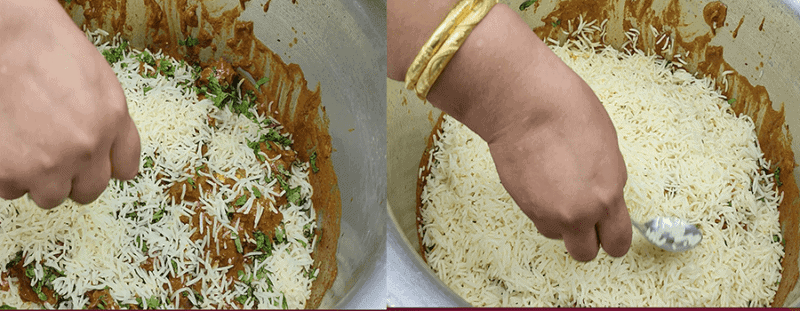
Step 22- Sprinkle chopped coriander and chopped mint over the rice and also a tablespoon of the oil you’ve retained from frying the onions, or another tablespoon of ghee.
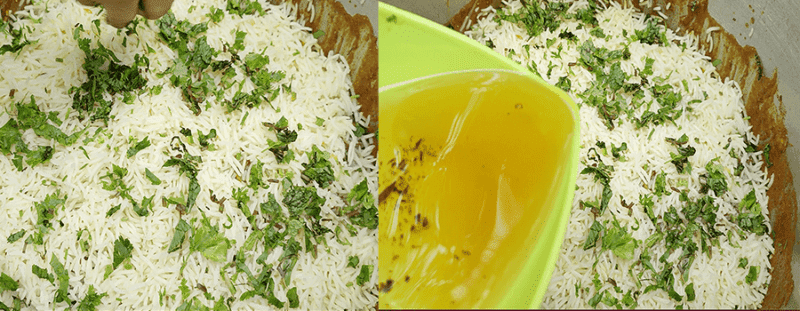
Step 23- Sprinkle the fried onions over the rice generously.
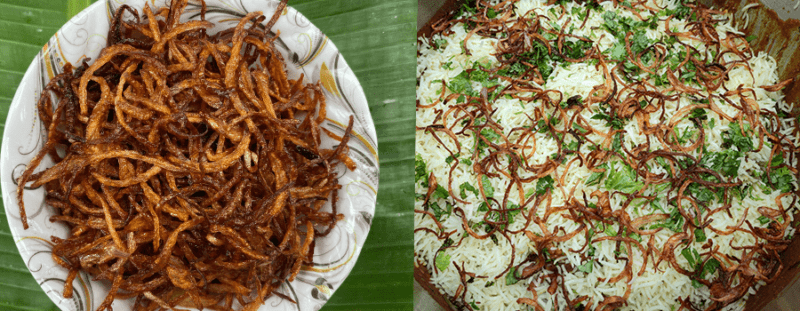
Step 24- Cover the vessel with a lid. Cook for another 10-15 minutes. You can seal the vessel using dough paste and cook over a slow fire.
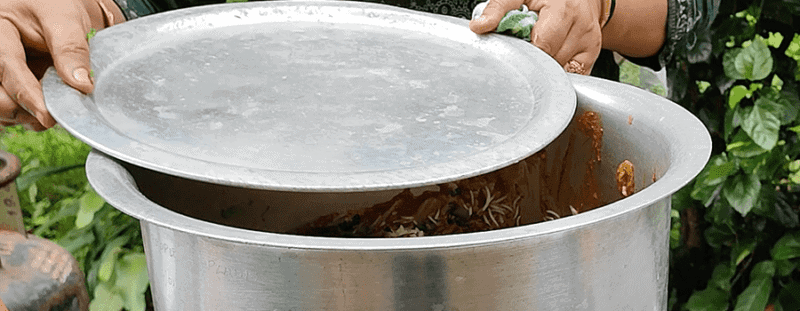
Step 25- After about 15 minutes, open the lid to take in the intense aroma of the spices and the delightful look of Goemchi Mutton Biryani.
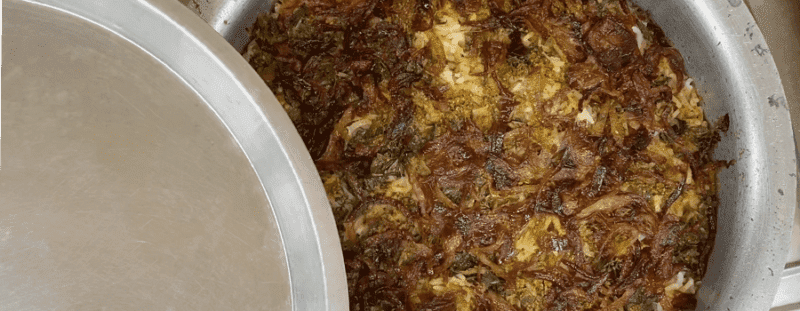
Step 26 – Serve with a bowl of raita and some pickle.
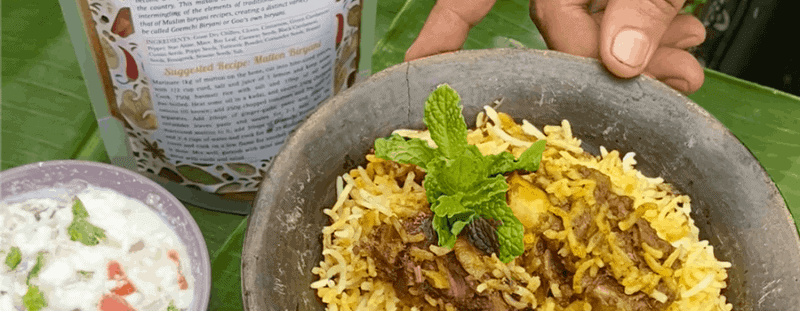
Note – Like it is with every preparation, Mutton Biryani is also not outside the boundaries of experimentation. There are many variations you can do on this theme, and of course adding potatoes is a common popular innovation. For 1 kg of mutton and rice, as in this recipe, one large potato will suffice, cut into four pieces. It is advisable to cook the potatoes separately to 80 percent—you can also lightly fry the potatoes to just brown them on the outside— and mix them with the cooked mutton and then together add them as a layer on the rice before the final cooking. Also, if you like boiled eggs with your biryani, add just two along with the first layer of rice so that they are in contact with the gravy and the rice. The quantity of ghee you use in the cooking results in how rich the biryani becomes, and instead of the fried onions, you can sprinkle some lightly fried cashew nuts and raisins or almonds in its place and also use them as a garnish. Many innovations are possible, and we would love to hear about how you did with our biryani masala. Do send in your experimentations and recipes to [email protected] or else you can upload your recipe here. and we will feature them on our website.




